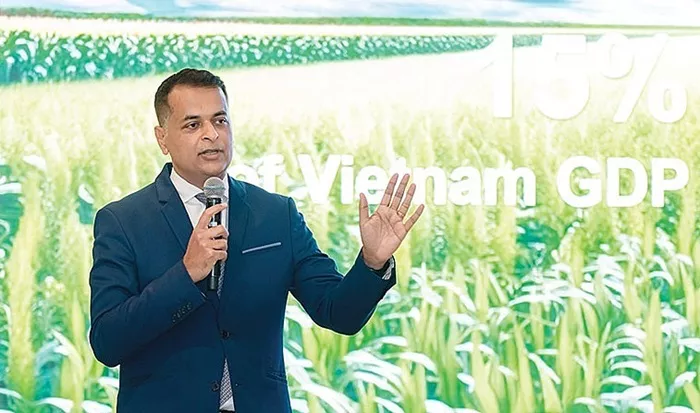The NESCAFÉ Plan has successfully rejuvenated over 74,000 hectares of coffee farms by introducing disease-resistant plantlets and promoting regenerative farming practices. As the initiative progresses, Nestlé aims to enhance transparency by implementing traceability at the farm level, allowing for direct sourcing of coffee from specific farms to its factories.
To bolster this effort, Nestlé is making significant investments in processing capacity in Vietnam, ensuring that locally grown coffee is value-added before export. This strategy is designed to strengthen the impact of Vietnamese coffee in both local and global markets.
Beyond improving the livelihoods of farmers and coffee communities, Nestlé is committed to regenerative agriculture in coffee production, which plays a crucial role in reducing emissions and fostering sustainability. The company has set a target to achieve net-zero emissions by 2050, with regenerative practices being pivotal to this mission. When effectively managed, these practices not only lower greenhouse gas emissions but can also reverse them by sequestering carbon in the soil, thereby creating a sustainable agricultural model that benefits both farmers and the environment.
Fifteen years ago, coffee farms in Vietnam’s Central Highlands predominantly relied on monoculture, dedicating vast areas solely to coffee. Today, however, Nestlé is advocating for a more diverse agricultural approach, promoting multi-cropping systems. Farmers are now cultivating not only coffee but also forest trees, pepper, and avocados, while employing natural pest control methods, conserving water, and using dried coffee leaves as organic mulch. This shift enhances biodiversity, reduces pesticide use, and enriches the soil, fostering a more sustainable farming model.
Vietnam has set an ambitious goal of increasing coffee exports to $6 billion by 2030. Nestlé plays a pivotal role in this national ambition, currently purchasing around 20 percent of the country’s coffee production. The company plans to maintain this level of engagement, recognizing Vietnamese farmers as some of the most productive in the world. By investing in the coffee sector, Nestlé is not only supporting Vietnam’s export objectives but also ensuring a robust supply chain with high-quality coffee.
At the recent Green Economy Forum and Exhibition (GEFE) 2024, Nestlé highlighted key initiatives focused on regenerative agriculture. This year’s forum saw record participation from companies and countries, with Switzerland, Nestlé’s home country, prominently represented, underscoring the event’s growing significance. The attendance of the Deputy Prime Minister further emphasized GEFE’s role as a collaborative platform.
Despite agriculture’s substantial contribution to greenhouse gas emissions—accounting for one-third of Vietnam’s total—this sector often receives less attention compared to high-tech industries like renewable energy. Regenerative agriculture presents a compelling solution, returning to fundamental practices to significantly reduce and potentially reverse emissions. Nestlé aims to champion this message, advocating for the understanding that sustainable farming can lead to meaningful environmental benefits.
Related Topics:
From Cebu to Toronto: Bo’s Coffee Expands Its Global Reach
Global Coffee Giants Brew Up Competition in South Korea
Cut the Coffee, Save for Retirement: O’Leary’s Bold Advice


